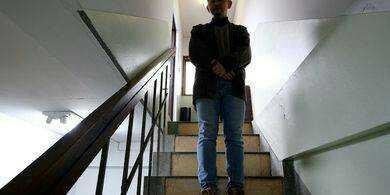
Ikeida came out of her house three days to buy food. He chose to avoid interaction with others.
The 55-year-old man who lives in Tokyo has never even met his parents or his sister for 20 years.
Reporting from AFP, the phenomenon of alienation for many years that is common in Japan is called "hikikomori".
As a graduate of the best university in Tokyo, he gained several lucrative job offers from reputable companies during the period of the "economic bubble" in Japan in the 1980s.
But Ikeida soon realized, she could not follow in the footsteps of her college buddies who work in big companies and live on regular paychecks.
"I went to a good university, my parents wanted it and I tried hard to adjust," he said.
"But I realized I had to adjust as long as I got a job offer, but I felt inadequate, I could not wear a suit, and felt heartbroken," he said.
The unbearable pressure made him choose to close himself in his room, avoiding all forms of interaction with humans.
Ikeida, not her real name, can live with social benefits. He can also earn a little income from writing articles online in his room.
She desperately wanted to recover and had asked her parents several times to accompany her to a psychiatrist, but they refused.
"I want people to understand that we are not crazy," he said.
"I do not want to die in solitude," he added.
Until now, the phenomenon of hikikomori many suspected only happened to teenagers and people aged 20 years, but middle-aged population more and more who do hikikomori.
A survey by the Japanese government in 2016 mentions that there are more than half a million residents who alienated themselves.
One-third have even withdrawn from society for more than seven years. That number increased 16.9 percent from the 2009 survey.
They usually stay home for more than six months without going to school or work. They only interact with family members, and not with others.
However, the survey calculated the number of hikikomori offenders under the age of 39. Currently, the government has decided to start a hikikomori survey of people aged between 40 and 59 years.
They are hurt
The reasons that drive people to shut down are not yet fully explained.
Many surveys state that they stop interacting with the community after being stuck in work, school, or failing to find work.
The psychologist Kayo Ikeda says some people suffering from schizophrenia will do hikikomori.
Schizophrenia is a chronic mental disorder that causes the sufferer to experience delusions, hallucinations, chaotic thoughts, and behavioral changes.
"What we know is that they have been injured, they are harassed and have interpersonal problems in work," he said.
Rika Ueda, an agency worker who helps parents with hikikomori actors, says social stigma can make the situation worse.
"Families with hikikomori children are so ashamed of themselves that parents are trying to hide the condition from society so that it becomes isolated without being able to ask for help," Ueda said.
Recognizing the problem continues to increase, Japan's health ministry filed a fund of 2.53 billion yen or Rp 329 billion in the next fiscal year to help hikikomori actors.
They will also get help to get a job that suits their condition.
Congratulations @indonesia-food! You have received a personal award!
Click on the badge to view your Board of Honor.
Do not miss the last post from @steemitboard:
Downvoting a post can decrease pending rewards and make it less visible. Common reasons:
Submit
Congratulations @indonesia-food! You received a personal award!
You can view your badges on your Steem Board and compare to others on the Steem Ranking
Do not miss the last post from @steemitboard:
Vote for @Steemitboard as a witness to get one more award and increased upvotes!
Downvoting a post can decrease pending rewards and make it less visible. Common reasons:
Submit